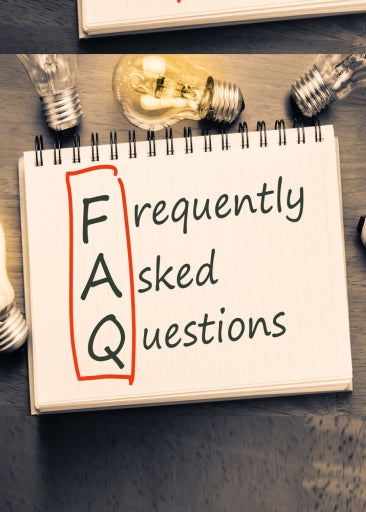Did You Know Perimenopause Can Start in Your 30s?

Did You Know Perimenopause Can Start in Your 30s?
Yes, you read that right. While most of us associate menopause with turning 50 and hot flashes with middle-aged women fanning themselves dramatically, the truth is a little more surprising—and more personal.
Perimenopause, the lesser-known sibling of menopause, often sneaks up on women in their late 30s or early 40s. It’s a transition phase where hormones begin to fluctuate wildly, causing a cocktail of physical and emotional symptoms that can make you feel like you're losing your mind—or your cool. Sometimes both.
But don’t worry, you’re not alone. And more importantly, you can manage it. Let’s talk about what it is, how it affects your body and mind, and what you can do to sail through this phase with grace, strength, and yes, peace of mind.
What Exactly Is Perimenopause?
Perimenopause literally means "around menopause." It’s the time leading up to menopause when your ovaries gradually begin to produce less estrogen.
Think of it as a hormonal twilight zone. One moment, everything seems fine. The next, you're crying over a toothpaste commercial, drenched in sweat at 3 a.m., and wondering why your periods have turned into a monthly mystery novel.
This phase can last anywhere from 4 to 10 years and ends when you haven’t had a period for 12 consecutive months—officially marking the beginning of menopause.
Common Symptoms of Perimenopause (That No One Warned You About)
Some signs are obvious; others are so subtle you may dismiss them as "just stress" or "getting older." Here’s what might pop up:
1. Irregular Periods: Your cycle may suddenly resemble a moody teenager—unpredictable, erratic, and frustrating. One month it's heavy, the next it vanishes altogether.
2. Hot Flashes & Night Sweats: That sudden rush of heat, flushed skin, and heart pounding? Yep, that’s a hot flash. Night sweats can leave you drenched and exhausted by morning.
3. Sleep Disturbances: Thanks to hormonal changes and night sweats, many women toss and turn all night, waking up groggy and irritated.

4. Mood Swings & Anxiety: One minute you’re fine, the next you’re irrationally annoyed by how someone’s chewing. Estrogen affects serotonin, so emotional highs and lows are part of the ride.
5. Fatigue: Even after a full night’s sleep (on the rare days you get it), you might feel worn out, like your body is carrying invisible bricks.
6. Brain Fog & Memory Lapses: Can’t remember why you walked into the room? Forgetting names, appointments, or losing your train of thought mid-sentence? Blame the hormones.
7. Vaginal Dryness & Low Libido: With declining estrogen, vaginal tissues may become dry and less elastic, leading to discomfort and decreased interest in sex.
8. Weight Gain & Sluggish Metabolism: Especially around the belly. Hormonal shifts and reduced muscle mass make it easier to gain and harder to lose weight.
The Emotional Side of Perimenopause
What makes perimenopause particularly tricky is that it doesn’t just affect your body—it affects your identity. You might feel like a stranger in your own skin, less confident, more irritable, or just plain lost. And since this topic isn’t widely discussed, many women suffer silently, thinking it’s just them. But you’re not broken. You’re evolving.
What Can You Do About It?
While you can’t stop perimenopause, you can make it much more manageable. Here’s how:
1. Lifestyle is Your Foundation
- Eat Smart: Embrace a diet rich in whole foods—vegetables, fruits, whole grains, and lean protein. Avoid too much sugar, caffeine, and processed food.

- Stay Active: Regular exercise (even a brisk walk) helps with mood, weight, and sleep. Strength training supports metabolism and bone health.
- Sleep Hygiene: Keep a cool, dark room. Avoid screens before bed and try calming rituals like herbal tea or deep breathing.
2. Mind-Body Practices Are Game Changers
- Yoga & Meditation: These reduce stress, improve sleep, balance hormones, and boost mental clarity. Even 10 minutes a day makes a difference.
- Breathwork: Try pranayama or deep belly breathing to help with anxiety and emotional regulation.
3. Herbal & Natural Remedies: Many women find relief through Ayurveda and natural supplements. Always consult your doctor, but here are a few worth considering:
- Ashwagandha: Supports hormone balance, reduces stress and anxiety.
- Shatavari: Nourishes the female reproductive system and balances estrogen.
- Evening Primrose Oil: Helps with hot flashes and breast tenderness.
- Maca Root: Supports libido and energy.
4. Hormone Therapy (For Severe Cases): If symptoms are significantly affecting your quality of life, talk to your doctor about HRT (Hormone Replacement Therapy) or bioidentical hormones. It’s not for everyone, but it can be life-changing when done right under expert supervision.
5. Talk About It: Normalize the conversation. Speak to your friends, sisters, mothers, and doctors. Perimenopause shouldn’t be a lonely or shame-filled experience. The more we talk, the more empowered we all become.
Quick Checklist: Are You in Perimenopause?
Ask yourself:
- Are my periods changing in flow or frequency?
- Am I experiencing sudden heat, poor sleep, or mood swings?
- Has my energy, memory, or focus taken a hit?
- Do I feel "off," but can’t put a finger on it?
If you answered “yes” to two or more, it’s worth discussing with your gynaecologist.
Conclusion
Perimenopause isn't a curse; it's a powerful biological transformation. It’s a phase where your body is recalibrating, your emotions are trying to get your attention, and your health is asking for a little more love and mindfulness.
You’re not fading away - you’re becoming more you than ever before.
And just like puberty, pregnancy, or motherhood, this too shall pass. With knowledge, support, and the right lifestyle changes, you can move through perimenopause with strength, dignity, and a sense of humor.













